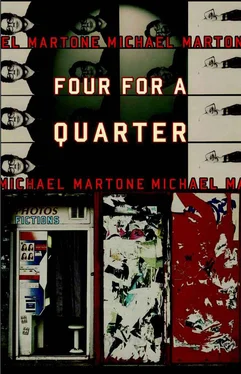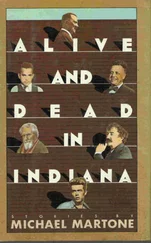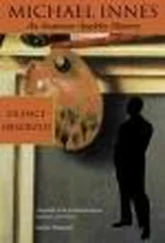Michael Martone - Four for a Quarter - Fictions
Здесь есть возможность читать онлайн «Michael Martone - Four for a Quarter - Fictions» весь текст электронной книги совершенно бесплатно (целиком полную версию без сокращений). В некоторых случаях можно слушать аудио, скачать через торрент в формате fb2 и присутствует краткое содержание. Год выпуска: 2011, Издательство: Fiction Collective 2, Жанр: Современная проза, на английском языке. Описание произведения, (предисловие) а так же отзывы посетителей доступны на портале библиотеки ЛибКат.
- Название:Four for a Quarter: Fictions
- Автор:
- Издательство:Fiction Collective 2
- Жанр:
- Год:2011
- ISBN:нет данных
- Рейтинг книги:3 / 5. Голосов: 1
-
Избранное:Добавить в избранное
- Отзывы:
-
Ваша оценка:
- 60
- 1
- 2
- 3
- 4
- 5
Four for a Quarter: Fictions: краткое содержание, описание и аннотация
Предлагаем к чтению аннотацию, описание, краткое содержание или предисловие (зависит от того, что написал сам автор книги «Four for a Quarter: Fictions»). Если вы не нашли необходимую информацию о книге — напишите в комментариях, мы постараемся отыскать её.
. In subject — four fifth Beatles, four tie knots, four retellings of the first Xerox, even the sex lives of the Fantastic Four — and in structure — the book is separated into four sections, with each section further divided into four chapterettes—
returns again and again to its originating number, making chaos comprehensible and mystery out of the most ordinary.
Four for a Quarter: Fictions — читать онлайн бесплатно полную книгу (весь текст) целиком
Ниже представлен текст книги, разбитый по страницам. Система сохранения места последней прочитанной страницы, позволяет с удобством читать онлайн бесплатно книгу «Four for a Quarter: Fictions», без необходимости каждый раз заново искать на чём Вы остановились. Поставьте закладку, и сможете в любой момент перейти на страницу, на которой закончили чтение.
Интервал:
Закладка:
4.
A third philosopher thinks he dies on the operating table. An arthroscopic instrument has been inserted into his body. He has been lightly sedated for the procedure so that he might watch the progress of the camera through his gastrointestinal tract, which he now contemplates as a single hole coring his body. A television monitor floats overhead. His doctor has encouraged him to watch. The drug administered to the philosopher is categorized as an amnesic. The immediate discomfort of the operation will never register in his memory. The doctor tells the philosopher what he, the doctor, is doing, what he, the doctor, is seeing on the monitor. The philosopher, though he is there for those moments, forgets them instantly as the drug scrubs away the arriving memories. This philosopher, the one who will think he has died, finds himself, at first, thinking of another philosopher, a colleague, who did actually die while he, the philosopher now forgetting what he has seen of his slick colon, watched the philosopher, his friend, die of pancreatitis there in a hospital bed. That philosopher's diseased pancreas secreted its enzymatic fluids indiscriminately. His body was digesting itself. That is what he said. “My body is digesting itself.“ All of this was happening on the insides of the philosophers who looked, on the outside to all the world, as if they were lightly sleeping. This is death, the philosophers think, or this is what death is like. One philosopher wants to remember the way it feels. But then he dies. The other wants to remember the way it feels. But then he forgets.
Four Susans
LAZY SUSAN
Susan took him home to meet her parents. Her parents had kept her bedroom exactly the way it had been when she was in high school. He was lying on the four-poster bed looking through her yearbooks, The Cauldron. He turned to the back of one from her senior year. The freshman pictures were minuscule, cells in a hive. The pictures enlarged as he paged through the classes, sophomores and juniors. The seniors, finally, stamp-sized and autographed. Susan's portrait, an embarrassment of hair, a string of studio pearls at her neck. He could see in it the Susan he knew, though shadowed by age and an airbrush long ago.
“Susan,“ he said to her, “a lot of Susans.“
“Tell me about it,“ she said. “Just as many Michaels.“
She was standing at the foot of the bed watching Michael as he flipped through the pages. On every page three or four Susans at least. Susan, Susan, Susan.
Her parents had turned on the television in the family room. They had all eaten dinner together in the breakfast nook. The table was a round maple thing with heavy turned legs. The whole house was Colonial with milk-glass lamps topped by frilly shades, hardwood chairs with spoke backs and curving arms, talon feet and and pinecone finials. In the corner, a Franklin stove boiled over with philodendra. The television was shuttered in a cabinet originally carpentered by Jefferson. On the table was an ancient lazy Susan. Her father had made the same old joke about it and his daughter's name. It rotated slowly on its own as they removed and replaced the dishes and plates, condiments and seasonings. It was a function of gravity and balance, the frictionless slide of ball bearings, but it appeared motorized like a display at a grocery store or museum. After dinner, they did the dishes at the sink while her parents rocked in the glider on the porch. Susan spun the lazy Susan like a wheel of fortune, a spinner from a board game. It twirled and twirled.
Susan stood at the foot of her bed watching him skim through her high school yearbooks. They had been lovers for years now, though they were maintaining the illusion that they were not for her parents' sake. During the visit, he would sleep in her brother's room. Her brother was an actuary in Milwaukee. She looked around her old room at its clutter of souvenirs, every innocuous object emitting its own secret life. She pressed herself against one of the bedposts, the one she had used as a child. The post had been lathed, swelling and contracting, cut with channels, knobs, and grooves. The wood was stained and distressed on its corners, the cherry color worn away. It wasn't until she moved out of this room that she started to touch herself. This was always better, but she had thought, back then, that her rubbing right here, again and again, had worn off the paint, had smoothed it finer than the finish on the rest of the frame, its polish another kind of stain.
It had been years since she had done this, and this still fit, the knurl scored in the wood, the abrading layers in her clothes, her skin beneath, the prickliness of her hair, how it felt again as she imagined again how it had been before, how always before she believed she felt even the grain of the quartersawn oak. Coming this way, she never made a sound. No one should hear. It was as if Susan was somewhere else, and this Susan, who was coming, was here but not conscious of pressing against the smooth wood, that turned, rippling whorl. With her hands on the post, she steadied herself, forgot she was there. She hardly moved, only pressed deeper into the infinitely complicated template of the wood, subtly molding each organic edge, fitting into the scooped-out shell of her past.
BLACK-EYED SUSAN
Susan, naked but for her glasses. She keeps them on. Sometimes wears an adjustable black elastic athletic band attached to each earpiece to keep them in place. She lets me slide the rubber loops onto the curving plastic, cinch them tight with the tiny slides. She puts on her glasses like goggles, reaches behind her head and snugs the buckle tight. Her glasses. The frames. Black plastic frames for the top halves of the lenses, silver wire rims below. Silver rivets at each top corner and at the temples. The delicate clear plastic pads resting on each side of her nose. Men's glasses. The glasses of the Johnson administration. NASA glasses. Vince Lombardi glasses. Colonel Sanders glasses. Malcolm X glasses. “I want to see,“ Susan says. I like looking at her naked, naked but for those glasses. She lives in one city, and I live in another. We don't see enough of each other. And when we do see each other we are more than likely. We like to meet in hotel rooms, motel rooms either here or there. The smaller the room the better. More mirrors then, designed for the illusion of space. She sits on the sink counter, her back against a mirror, looking over my shoulder as I stand in front of her between her legs. She is looking into the mirror on the closet door behind me. I look into the mirror her back presses against, see my back, my ass flexing. See Susan, her chin on my shoulder, looking into the depth of the mirrors reflecting back and forth. Susan, Susan, Susan, Susan. I sit on a chair. She sits on me. She tells me what she sees in the wall mirror since I can't see. I take the elastic strap between my teeth. I pull it tight. I gnaw on it. On her hands and knees she angles a hand mirror between her legs. She watches me go in and out behind her, above her. On her back with me on her, she hovers the hand mirror above us. The silver of the mirror pools between her legs. As I lick her, I see the mirror fog and clear. Fog and clear. She catches sight of us, shadows reflected in the blank screen of the television. We are unfocused ghosts from another channel bleeding through. I watch her watch herself on the screen. I watch her as she comes. She doesn't close her eyes. I see myself focused on the surfaces of the lenses of her glasses as she comes. I see through those transparent images, my refracted face, its contrasts of planes and angles. I see through the lenses to the other smaller versions of me, motes, floating on each glossy pupil's black concave dilation.
SUE BEE
Susan, you call. Your husband is out of town, your kids in bed. I walk over. All your neighbors have cut their lawns. The evening steams. There is that chorus of locusts, a hatch this year, the sibilant sawn to fricative and back, the z's spent to s's. The s, s, s, s. You are sitting on the front steps, drinking from a cold bottle of beer. You touch my arm with it and lead me inside where it is cooler. The dinner dishes are still stacked on the counter, with the spice tins, the pepper mill, the spent mix boxes, the flour jar open, the pans and skillet in the sink, a very slow drip from the faucet. “The place's a mess,“ you lisp, “and I'm a little drunk.“ You don't want to go upstairs. The kids are restless in the heat. You want to fuck in the kitchen, half-clothed on the table, the chairs. On a whim you grab the almost empty plastic bear of honey, pull the cap free with your teeth, the nozzle sweet between your lips, and turn it on its head. Kissing me, you wait forever, for the honey to run down, coating the inside. You squeeze its belly, run a bead of honey along my cock, smearing it with your fingers, then spreading it with your tongue so that it coats the whole length. It takes hours to work my cock inside you. A drop of water collects on the lip of the faucet. A dew of honey clings to your hair. You rub your clit, tease your hair stiff, then lick your fingers and smell the resin of the rosemary, the tupelo, the tulip poplar, the alfalfa, the clover the honey was made from. We can hardly move, my cock caught fast deep inside you, our mouths stuck to each other, sucking the honey coming to our lips. We are still there. Why move? The children never wake up. The dishes are never done. Your husband never returns. The grass never grows again. The trees are studded with hundreds of cicada shells. All the bees are fossilized in amber. That drop of water trembles on the lip of the faucet always about to fall.
Читать дальшеИнтервал:
Закладка:
Похожие книги на «Four for a Quarter: Fictions»
Представляем Вашему вниманию похожие книги на «Four for a Quarter: Fictions» списком для выбора. Мы отобрали схожую по названию и смыслу литературу в надежде предоставить читателям больше вариантов отыскать новые, интересные, ещё непрочитанные произведения.
Обсуждение, отзывы о книге «Four for a Quarter: Fictions» и просто собственные мнения читателей. Оставьте ваши комментарии, напишите, что Вы думаете о произведении, его смысле или главных героях. Укажите что конкретно понравилось, а что нет, и почему Вы так считаете.












